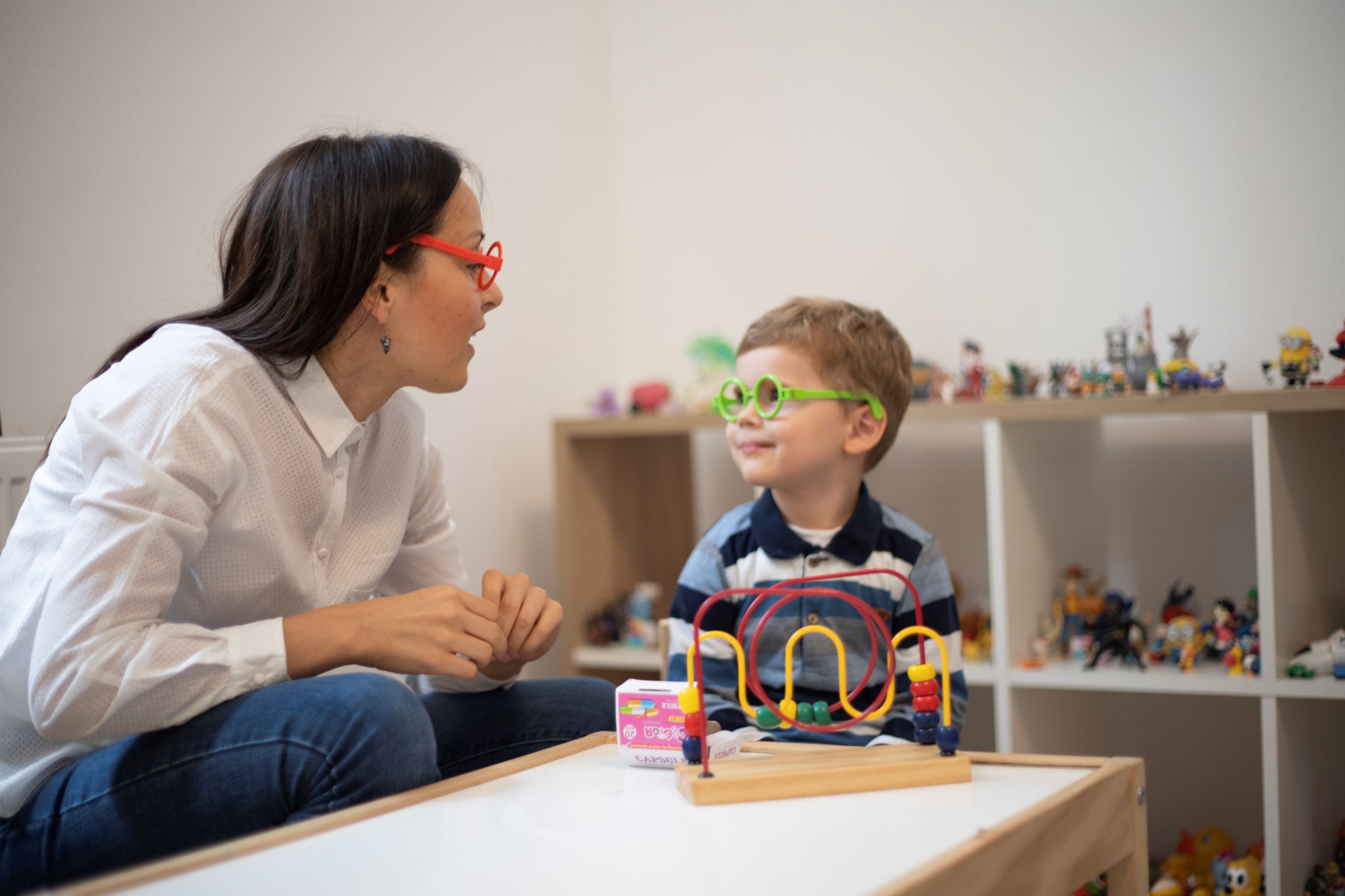Autism spectrum disorder affects approximately 1 in 54 children in the United States, according to the National Autism Association. The rate of autism has increased over the last 20 years as doctors have gotten better at diagnosing and awareness of early warning signs has grown. Still, many parents are not aware of life-changing interventions like ABA therapy, which has been shown to significantly benefit children with autism. In this article, we’ll walk you through what it is, how it helps, and how to get started with ABA therapy.
Autism is a developmental disorder that presents challenges with communication and social interaction. People with autism may have difficulty having two-way conversations and shared interests with family members, peers, and people out in their community. Understanding other people’s emotions might be tough for a person with autism. They may also show different behavior patterns, such as repeating the same movement or word over and over, or have challenges with switching routines and other inflexibilities.

Applied behavior analysis (ABA) is a therapy based on the science of learning and behavior. It is considered a medically necessary treatment for people with autism. ABA therapy can be performed by an ABA therapist at home, at school and out in the community.
ABA therapy involves working with a trained healthcare professional called a registered behavior technician (RBT), who works with the child or adult to support learning skills that are part of daily living, such as brushing teeth, getting dressed and making a meal. ABA therapy also focuses on helping to reduce challenging behaviors and build social skills.
A behavior technician is supervised by a board-certified behavior analyst (BCBA). BCBAs have a master’s degree or higher in behavior analysis, psychology, or education and must pass a national certification exam.
Benefits of ABA therapy
“We teach new skills by breaking them down into really small steps,” says Erin Isbell, a board-certified behavior analyst and clinical manager at Maxim Healthcare Services. “For teeth brushing, I would literally break it down as in, walk to the bathroom, turn on the light, turn on the sink, and so on, and then put it all together for the learner to have a teeth-brushing routine.” Learners are rewarded for engaging in the routine; it is usually something they like, such as play, a favorite toy or an activity.
Through play, ABA therapy helps children with autism learn social skills. A behavior technician teaches the child to play next to a peer, and then with a peer, and then to share, and then to talk in conversations. “With adult learners, we might teach how to engage in a two-way conversation and how to ask questions,” says Isbell. “With a child, we help them ask for what they need in that moment, such as saying, ‘I want help’ or ‘book.’” It’s all about functional communication – helping individuals build these skills in order to have their needs met.
Challenges
Changes in routine can be very difficult for individuals with autism. When schools closed due to the pandemic, the change disproportionately affected children with autism. Many parents lost access to ABA therapy resources, although some have adjusted and are providing telehealth services.
“I tell my clients to try and be as consistent as possible with routines in the home,” says Isbell. “It’s important for parents to give themselves a break during this time and do what they can to support their child.”
Screening for autism
The average age for children to be diagnosed with autism is about 4 years old. But, children as young as 18 months show signs that parents can recognize. There are early warning signs of autism that parents of very young children should know, including:
- Lack of eye contact
- Not responding to name when called
- Developmental delays
Children are typically screened for signs of autism during well child visits. If parents recognize any of these signs of autism, they should communicate with the child’s primary doctor or pediatrician. The doctor may see your child and perform a more detailed screening to further identify delays, and may also refer you to a specialist. Doctors who typically diagnose children with autism include clinical psychologists, neurologists, and developmental pediatricians.
Importance of early intervention
Often, parents who have a child showing signs of autism don’t take the child to the doctor for evaluation. Parents may not recognize the signs of autism, may hope their child will outgrow their symptoms, or simply do not know the next step to take to help their child.
“Early identification and intervention is an important way for parents to support their child with autism,” says Sean Stone, regional director of product support at Maxim Healthcare Services. Once a child is diagnosed with autism, they can begin learning the skills they need to communicate and support themselves in the future. Parents feel a sense of relief once there is a plan in place to help their child be successful.
Paying for ABA therapy
A lot of parents don’t know that ABA therapy and other autism-related services are available to them and covered by insurance. Many state health insurance plans including Medicaid cover ABA therapy for children through age 21. The rules and requirements vary by state, so be sure to check your state-specific guidelines.
Misconceptions
ABA therapy and other autism-related services are available for families, but many don’t know they exist. “I wish more people knew that they could access these services,” says Stone. Don’t assume your pediatrician’s office has all the information. The best thing is for families to get educated and find out what resources and services are available in your area.
Additional resources
- National Institutes of Health: “Top 10 Reasons Children With Autism Deserve ABA”
- Autism Speaks: Parent’s Guide to Applied Behavior Analysis
- Behavior Analyst Certification Board: About Behavior Analysis
Maxim Healthcare Services helps families get access to ABA therapy and other autism-related services. If you have a child who was diagnosed with autism, contact Maxim today to learn more about resources and support that are available to you.





